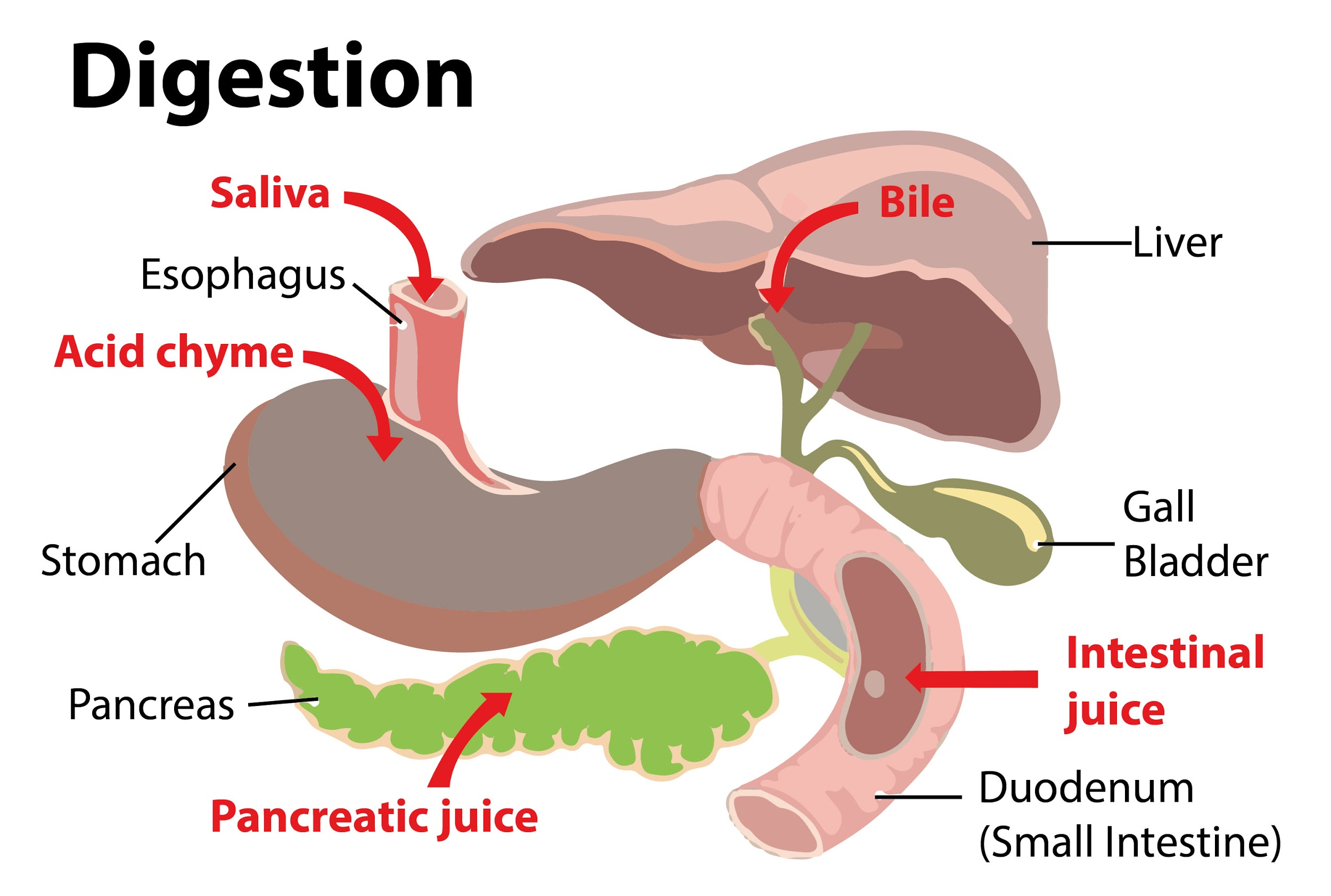
Succus entericus is the other name of
A. Gastric juice
B. Intestinal juice
C. Bile juice
D. Saliva
Answer
599.1k+ views
Hint: The digestive juice produced by the glands of the duodenal region which is alkaline in nature and helps in the digestion of various food particles by breaking the large particle into smaller and simple particles. It includes a mixture of enzymes.
Complete answer:
Succus entericus is also known as the intestinal juice which is secreted from the glands present in the duodenum of the small intestine. It consists of two enzymes maltase and amylase.
Additional Information: -Succus entericus is also known as the Crypts of Lieberkuhn
-They are the clear to pale yellow watery secretions from the glands lining the walls of the small intestine.
-The crypts of Lieberkuhn are the tubular glands that lie between the finger-like projections of the small intestine called villi.
-The function of succus entericus is to complete the process begun by the pancreatic juice.
-In pancreatic juice, enzyme trypsin is present in its inactive form called trypsinogen.
-The inactive trypsinogen is activated by intestinal enteritis in intestinal juice.
-Trypsin after its activation can activate other protease enzymes.
-Succus entericus also contains hormones, digestive enzymes, mucus, hydrochloric acid to neutralize the substances, and erepsin to complete protein digestion by breaking polypeptide chains into amino acids.
-Brunner’s gland secretes a large amount of mucus or juice which is alkaline in nature and helps in the process of digestion.

So, the correct answer is, ‘Intestinal juice.’
Note: The intestinal glands contain adult stem cells which are called intestinal stem cells. These stem cells have been used in the field of stem biology to understand the stem cell niches and to generate the intestinal organoids. The inflammation of crypts is known as cryptis and its severity may lead to crypt abscess.
Complete answer:
Succus entericus is also known as the intestinal juice which is secreted from the glands present in the duodenum of the small intestine. It consists of two enzymes maltase and amylase.
Additional Information: -Succus entericus is also known as the Crypts of Lieberkuhn
-They are the clear to pale yellow watery secretions from the glands lining the walls of the small intestine.
-The crypts of Lieberkuhn are the tubular glands that lie between the finger-like projections of the small intestine called villi.
-The function of succus entericus is to complete the process begun by the pancreatic juice.
-In pancreatic juice, enzyme trypsin is present in its inactive form called trypsinogen.
-The inactive trypsinogen is activated by intestinal enteritis in intestinal juice.
-Trypsin after its activation can activate other protease enzymes.
-Succus entericus also contains hormones, digestive enzymes, mucus, hydrochloric acid to neutralize the substances, and erepsin to complete protein digestion by breaking polypeptide chains into amino acids.
-Brunner’s gland secretes a large amount of mucus or juice which is alkaline in nature and helps in the process of digestion.

So, the correct answer is, ‘Intestinal juice.’
Note: The intestinal glands contain adult stem cells which are called intestinal stem cells. These stem cells have been used in the field of stem biology to understand the stem cell niches and to generate the intestinal organoids. The inflammation of crypts is known as cryptis and its severity may lead to crypt abscess.
Recently Updated Pages
Master Class 11 Business Studies: Engaging Questions & Answers for Success

Master Class 11 Computer Science: Engaging Questions & Answers for Success

Master Class 11 Economics: Engaging Questions & Answers for Success

Master Class 11 Social Science: Engaging Questions & Answers for Success

Master Class 11 English: Engaging Questions & Answers for Success

Master Class 11 Chemistry: Engaging Questions & Answers for Success

Trending doubts
Draw a diagram of nephron and explain its structur class 11 biology CBSE

Explain zero factorial class 11 maths CBSE

Chemical formula of Bleaching powder is A Ca2OCl2 B class 11 chemistry CBSE

Name the part of the brain responsible for the precision class 11 biology CBSE

The growth of tendril in pea plants is due to AEffect class 11 biology CBSE

One Metric ton is equal to kg A 10000 B 1000 C 100 class 11 physics CBSE




